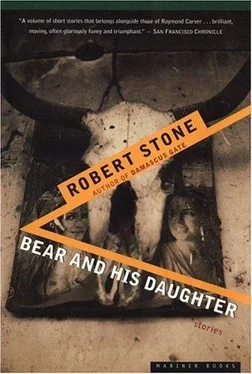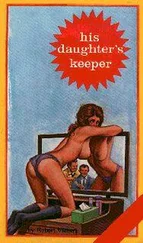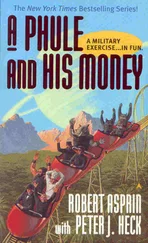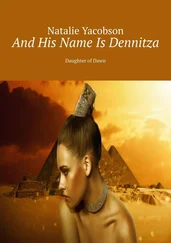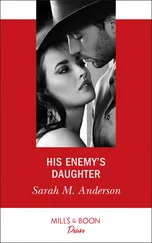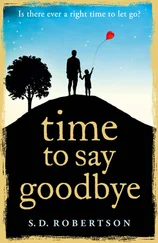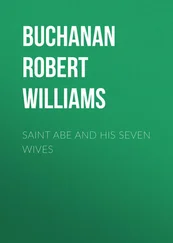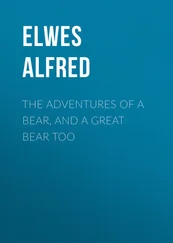“Because some say it used to grow over graves, honey. Along the trail. And others say because the flower looks a little like a skull.”
The brachiated lava had other plants.
“Wintergreen,” Rowan told them. “And phlox. And I like this one because it’s called ranger’s buttons.” And, as always, that got her a titter as though it were amusing. “So when I die,” she said, “and they bury me here on the lone prairie, you’ll see some death camas over me and some ranger’s buttons.”
Another lesser polite titter.
“And maybe a mountain ash,” Rowan said. “Anyone guess why?”
No one did. Rowan showed them her name tag, on the side of her shirt opposite her gold badge, holding it out between her fingers.
“Because my name’s Rowan. And back in the old country that’s a tree with red berries you hear about in songs, and here in our country it’s a related tree that’s got red berries too and they call it the mountain ash.” She looked around at the lunar landscape. “Except I don’t think they can get one to grow out here. Even for me.”
Some of her colleagues unkindly called her lectures “The Smarty Rowan Show” because instead of being about mafic fluid and volcanic rock, they often had a lot to do with Rowan Smart.
Finally she led them all into the volcanic tunnel that led to the Temple, past the polychrome stalagmites to the table of ash and cinder. Rowan had them spread out around the black chamber while she mounted a rise behind the table. Phyllis Stowe had locked up the park headquarters and come to the Temple to oversee Rowan’s wrap-up. Things were running late and Phyllis was annoyed.
“Now this,” Rowan told her charges, “is what they call the Temple. Can you all see why?”
Everyone nodded.
“It does look like a temple, doesn’t it? In fact, some Latter-day Saints at first thought it might be a temple of the tribe of Zebulon come to America. But that proved not to be.”
“Who built it?” a middle-aged man asked. Someone always seemed to ask that question. The place was so fantastical in its range of color and light that people resisted the idea of its natural formation. It was as though they had lost their faith in nature.
Once she had had a European visitor on the tour who plainly refused to believe Rowan’s insistence that the cavern was natural. It was America and the visitor had required inauthenticity and illusion. But there were a thousand caves in the same colors within a few hundred miles, all quite natural.
“Do you think if we had made it,” Rowan had asked the visitor, “we’d only charge you a buck to get in?”
It had been back in the days when the Europeans had fallen in love with New York subway graffiti and brought spray-paint cans with them on rafting tours and harassed the Indians.
“No one built it,” Rowan said. “God built it.”
The crystal was catching up with Rowan. She remembered that her father was on the way and all it entailed. She began to think of the times he had left her weeping, of the stories he had started to tell her and then gone away, leaving them incomplete. Sometimes she would imagine endings for them, hoping one day to surprise him with his own tales, but he would never remember what she was talking about.
“Were there like human sacrifices here?” the teenager asked. Everyone murmured echoes to the question. Phyllis Stowe looked at her watch.
“Seems like that kind of place, doesn’t it?” Rowan asked. A certain type of kid always asked that question, and this girl, gawky, tomboyish, innocently flirting with Rowan, was the type. “There might have been. Someone used the cavern for ceremonies. Before the modern Indians lived around here there were Caddoan-speaking people who practiced a kind of human sacrifice.”
A special silence fell. Rowan held them with her bright eyes.
“They had a legend like the one about Abraham and Isaac. They believed that the sun couldn’t move unless blood was shed. Sun couldn’t move because he couldn’t see. Nothing would grow. Children would not grow up. So sometimes captive boys or orphan girls from the Bear Clan were put on the stone and killed. The girls were the ones who had a dream where they died. They were killed when a certain star appeared in the morning, and the people called the killing Morning Star Ceremony. We don’t know what the star was. Probably it was the planet Venus.”
“Were they like tortured?” the teenager asked.
“They were never tortured,” Rowan said. “They died very quickly with an arrow through the heart because they were important girls. They were the grandchildren of Sun through his sons and daughters the Bears, and Sun needed their eyes to see. When Sun saw their blood he ran through the sky. We cannot make our sun stand still,” Rowan declared, “yet we can make him run. This is where the girls might have been killed. Here in the Temple.”
“Whoa,” said the teenager.
The ones like her, Rowan thought, strange things would be going through their heads about now. Outrage about the orphan girls. Unfamiliar urges involving death and sacrifice. At least that was how it had been for her, and that was how she imagined certain kids felt. She would have liked to take this one aside.
“And the Bears,” Rowan said, “to conceal the blood, to fool the other animals and to fool the girls, spread black cornmeal all around. And that’s why the ash is here, and the cinders, all that black world, the mafic fluid. The world around here.” She raised a hand, checking the pulse in her forehead. Her face felt hot and dry. “Well,” she told her public, “that’s all we have time for. I hope you’ve enjoyed your visit to Temple Cavern as much as we’ve enjoyed having you.”
And she had enjoyed having them. In her present frame of mind, she might have gone on for hours.
“Where the heck did you get that sacrifice bit?” Phyllis asked discreetly as the visitors filed out. “I sure never heard it before.”
“It came as a revelation,” Rowan told her. “I was reading Karl Bodmer. I mean spiritually it was pretty fucking sublime.”
“Thanks but no thanks,” said Phyllis. “Well, I guess you’re the expert.”
“Sure,” said Rowan. “I’d do it.”
“Well,” said Phyllis, “you certainly had them eating out of your hand.”
“Thanks. Sorry I kept you late.”
“I guess it’s all right,” Phyllis said. “Good luck on enforcement tomorrow.”
The turnoff for Temple State Monument was in a village called Deerdrum, thirty miles from the college town in which Smart was scheduled to read. Just before arriving in Deerdrum, the highway passed through the Shoshone reservation where Rowan’s friend John Hears the Sun Come Up had spent his childhood. The reservation was scattered over a vast plain of sage and greasewood that stretched toward distant mountains. Here and there over the plain were clusters of beige rectangular buildings and khaki trailers. These were the clinics, schools and meeting halls, some enclosed within chain-link fences. Each cluster was equipped with a few government-issue street lights of the sort found around prisons or military bases. The lights were automated, geared to daylight, so that as the weather changed in the enormous sky overhead they would flash on and off in reaction to passing banks of clouds. Near the road was a square white wooden church, freshly painted, with a little bell tower trimmed in green and a gold-colored cross.
Deerdrum itself had changed since Smart had last seen it. Once its fortunes waxed and waned with molybdenum production and the molybdenite mine outside of town. Now there was still some mining, but tourism was coming in. The hot springs along Antelope Creek had been dammed. Artists and soothsayers had moved out from the expanding university, and one of the town’s restored gingerbread brothels had become a bed-and-breakfast. There was a Days Inn and even a florist.
Читать дальше
